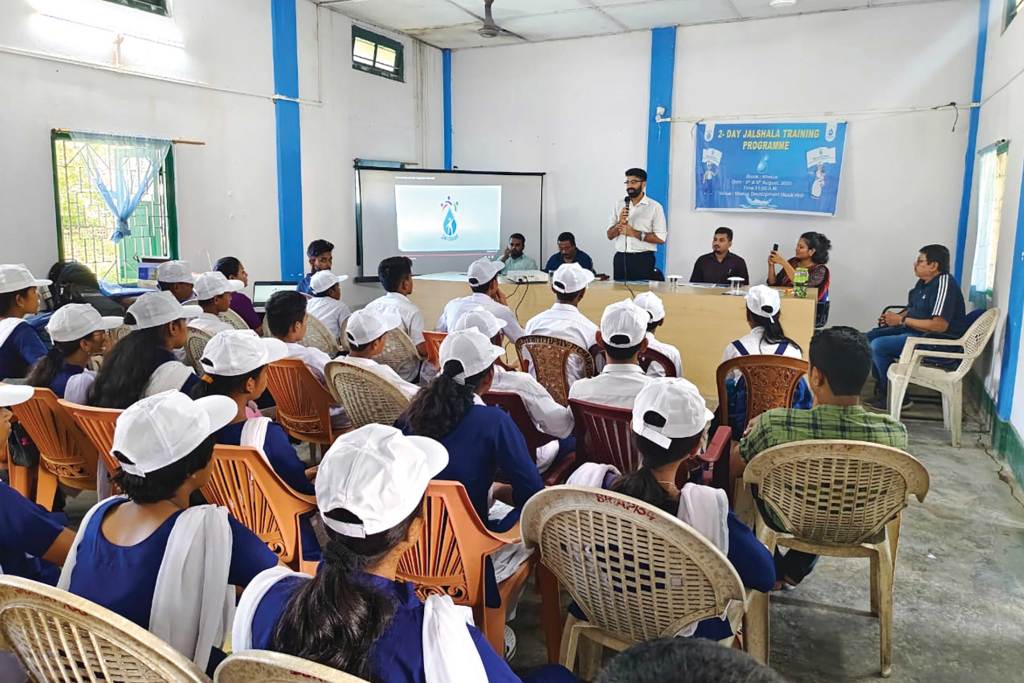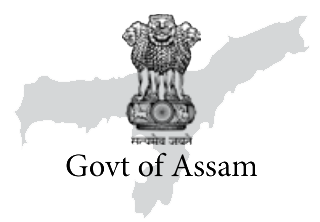15 kilometres west of North Lakhimpur town, the headquarter of Lakhimpur district in Assam is No. 2 Soriyohbari village. Since the third week of August, a young girl, Samina Nargis, aged just above 13 and a student of Silonibari ME School, has been busy imparting basic knowledge of clean and pure water and its health implications to her native villagers.
By imparting basic knowledge about the importance of clean, and potable water for human consumption to her native villagers and friends, Samina has been executing her ‘JalDoot’ responsibility.

She was selected for JalDoot responsibility of Jal Jeevan Mission (JJM) by the nodal teacher at the school because she had shown an inclination for social work. “I regularly take part in cleanliness drives on our school premises. Apart from this, I have interest in extra-curricular activities. I was told by our teacher that I will be one of the best ones to carry out the role of a JalDoot,” said Samina.
In fact, the JalDoot Programme is a significant step in the JJM scheme of things of ensuring continuity of the ambitious water supply schemes through the active participation of communities and thereby creating a sustainable and water-efficient society.
The enthusiastic Samina attended ‘Jal Shala’, a training programme held under the aegis of the district Jal Jeevan Mission (JJM) unit and Lakhimpur district administration for school students on August 12 and 13 at Rampur High School.
“At the Jal Shala, we were taught about water conservation, water quality, JJM, and sensitising villagers on clean, pure and safe drinking water,” Samina told Asom Barta while recalling her experience.
Like Samina, the district JJM has selected four other students of Silonibari ME School for the role of JalDoot.
“We have five Jaldoots in our school, four girls and a boy. Our prime responsibility is to tell school students about JJM,” Samina informed this reporter.
A couple of hundred kilometres from Lakhimpur in Sivasagar district’s Bhadra Higher Secondary School studies Anuradha Barua. She was designated as a JalDoot in a programme at Khelua Development Block, along with many like hers on August 8. The next day she was part of the training programme at the water supply scheme of Nau-Pam Chetia village, along with more than 50 students from Class VIII to XII.
The programme is being conducted across the State to create water ambassadors like Anuradha and Samina.

Lakhimpur district IEC (Information, Education and Communication) officer of JJM, Chatra Prasad Pathori, told Asom Barta that Jal Shalas were held in schools to impart the importance of pure and clean drinking waters for human consumption, and the overall objectives of JJM.
“In consultation with the Lakhimpur district administration, we organised the first Jal Shala on August 12 and 13 at Rampur High School. The District Commissioner, who is chairman of the District Water and Sanitation Mission (DWSM), also participated. It is a talent hunt drive among school students for carrying out the message of the JJM among students and villagers,” said Pathori.
Jal Doot programme aims to orient the students from Classes VIII to XII on the safe management of water, WASH practices focusing on drinking water security and management; and functionality assessment of the piped water supply schemes and overall operation and maintenance following a structured training module.
It is a unique initiative of Jal Jeevan Mission, Assam to harness the role of students in sensitising rural masses on the importance of safe drinking water and its management.
“To identify students to act as Jal Doot, we take help from ‘Nodal Teacher’ in every school. Nodal teachers are responsible for identifying students’ who are interested in campaigning for schemes launched by the Government, eager to work apart from studying, and have interests in social works,” said Pathori.
Sujata Gautam, an official of State Jaldoot Cell told this newsletter that such initiatives have wider implications in society. On August 14, JalDoots of Bhadra Higher Secondary School performed a street play to tell locals that “water is life”.
Partha Barua, a beneficiary of the JJM scheme, was appreciative of the idea of JalDoot. “Making students work for society is a very good idea. We do not mind learning from them.”














